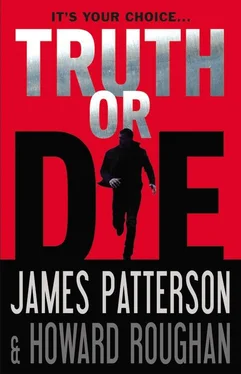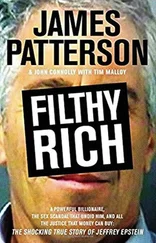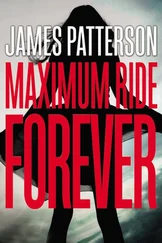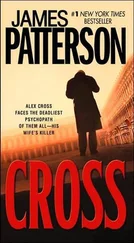“I’m confused, then,” I said. “What changed? Why would you be talking to us?”
Wittmer leaned in, pressing his palms down on that cherrywood table with what might as well have been the weight of the world. “Because those recordings you have don’t tell the whole story,” he said. “But mine do.”
Wittmer pushed back his chair and disappeared from the kitchen, returning about a half minute later with an old Dell laptop. While he was gone, Owen and I didn’t utter a single word to each other. Really, what was there to say? The doctor had basically just promised to blow our minds. The only thing to do was shut up and wait for it.
Another half minute passed while Wittmer’s laptop booted up. Given the anticipation, it felt like an eternity. Finally, he clicked on a file and pressed Play, angling the screen in front of us so we all had a good view. It was showtime.
“This is from the same black site outside of Warsaw during the same time period,” he explained.
Indeed, from the get-go everything about the recording looked familiar. The windowless room shot in black-and-white. The lone metal chair with a Middle Eastern man shackled to it, followed by the two men in suits who restrained him while he received the shot to his carotid artery.
Of course, the doctor wielding the syringe looked familiar as well. We were in his kitchen.
“What is your name?” asked the voice off camera.
Immediately, a second voice translated the question into Arabic, and as with Owen’s recordings, the Arabic was translated back into English via subtitles. Everything was the same.
Except, in this case, the prisoner’s response.
“I speak English,” he said softly.
The two voices from behind the camera could be heard conversing, but even with the volume maxed out on Wittmer’s laptop, we couldn’t understand what they were saying. I assumed it was about the way they wanted to proceed, although you wouldn’t know it given how the first voice repeated the question — “What is your name?” — as if he were some automated prompt.
“My name is Makin Pabalan,” answered the prisoner.
Hearing him speak again, it was clear that he was fluent in English. His accent notwithstanding, there was no hitch from his having to translate in his head from Arabic. If I had to guess, I’d say he’d been educated at some point in the US.
Again, there was more talking behind the camera. We still couldn’t make it out. Whatever was said, though, it resulted in a deviation from the script.
“We’ll proceed in English only,” came the voice. “Do you understand? The questions now will only be in English.”
“Yes,” said the prisoner. “I understand.”
“And you will only answer in English. Is that understood as well?”
“Yes.”
“Please state your name again.”
“My name is Makin Pabalan.”
“Are you a member of Al Qaeda?”
“No,” said the prisoner.
“Are you aware of any plans by Al Qaeda to kill American citizens?”
“No.”
“Are you a member of any organization that considers the United States of America an enemy?”
“No.”
“Are you aware of any organization that is planning to bring harm to any American citizens anywhere in the world?”
“No.”
There wasn’t the slightest hesitation from the man in the chair as he answered each question. He looked nervous, but not to the point of fear. Nor was there any anger in his eyes. If I had been cross-examining him in a courtroom, he would’ve qualified as a cooperating witness.
More importantly, there wasn’t the slightest physical change in him. His jaw didn’t clench, the chair didn’t begin to rattle. There was no downward spiral of pain followed by even more pain. No sign of lie and you die .
He was telling the truth.
Owen and I exchanged glances, the thought being that the doctor had it wrong. This wasn’t the whole story, it was the same story.
In unison, we turned to Wittmer. What gives?
But he was still staring at the screen, a subtle but unmistakable cue that we should be doing the same.
The doctor knew exactly what he was talking about.
IT HAPPENED so damn and scary fast.
One second, the prisoner was fine. The next, he wasn’t. Only this was different from Owen’s recordings. So very, very different. This began in an instant and barely lasted much longer. It was a flash. No, it was a detonation.
It was as if the man’s brain had actually exploded inside his head.
I watched as his eyes rolled back, his face convulsing like it was lodged in a paint mixer at Home Depot. The force was so strong it literally lifted the man off the ground, chair included. By the time gravity fought back, he and the chair were tipped over on the floor, motionless.
“Christ...” Owen muttered, his voice trailing off.
Wittmer reached out and hit the space bar on the keyboard, pausing the recording. It was right then that the thought occurred to me. As quickly as all hell broke loose in that interrogation room, it wasn’t as if the doctor couldn’t have tried to intervene.
But he was nowhere in the frame. Why not?
“That might have been the sickest part of all,” Wittmer said as if reading my mind. “The second I tried to help, I was literally held back. They didn’t want the guy saved. They wanted him documented . Like a lab rat.”
He hit the space bar again to resume the recording. True to his word, Wittmer finally sprang into the frame as if he’d just broken free from the two other guys behind the camera. Within seconds of his kneeling down and placing two fingers on the prisoner’s neck, he shook his head slowly. The man was dead.
“Was there an autopsy performed?” asked Owen.
“Yes. It was an aneurysmal subarachnoid hemorrhage,” said Wittmer. “Each and every time.”
Boom.
“Wait... what? ” I asked. But I’d heard him perfectly. So had Owen.
“It happened seven other times out of twenty trials,” said Wittmer. “At least, the twenty trials I was overseeing.”
Owen shook his head in disbelief. “A forty percent fail rate,” he said. “Was the prisoner cooperating each time?”
The doctor nodded, his gaze retreating. It was as if he had nowhere to look. “Karcher just calls it collateral damage,” he said, disgusted. “I call it murder.”
There was no pushing that last line aside, no ignoring its implications. The words simply hung there at the table, filling the silence. If I hadn’t known better, I would’ve sworn the clock above us had stopped as well. I couldn’t hear it tick.
Eventually, Owen spoke up. “Does Karcher know you have this recording?” he asked.
“If he did, I’d probably be dead right now,” said Wittmer.
It was hard to argue with that. Owen and I were living proof.
Immediately, all I could picture in my head was this guy, Karcher, arranging for Claire’s death. Then Owen’s. Then mine.
Sometimes the only thing more dangerous than a man with nothing to lose is a man with everything to lose.
Frank Karcher was every bit that man.
“What we need now is the link,” said Owen. “Proof that the serum exists, that it was used, and that Karcher’s fingerprints are all over it.”
Am I missing something? “Don’t we already have an entire film festival that proves the first two?” I asked.
“The recordings prove a lot of things,” said Owen. “Without the person responsible, though, it’s just an embarrassing home movie for the entire country.”
“Fine. So commence with the congressional hearings,” I said.
Читать дальше












